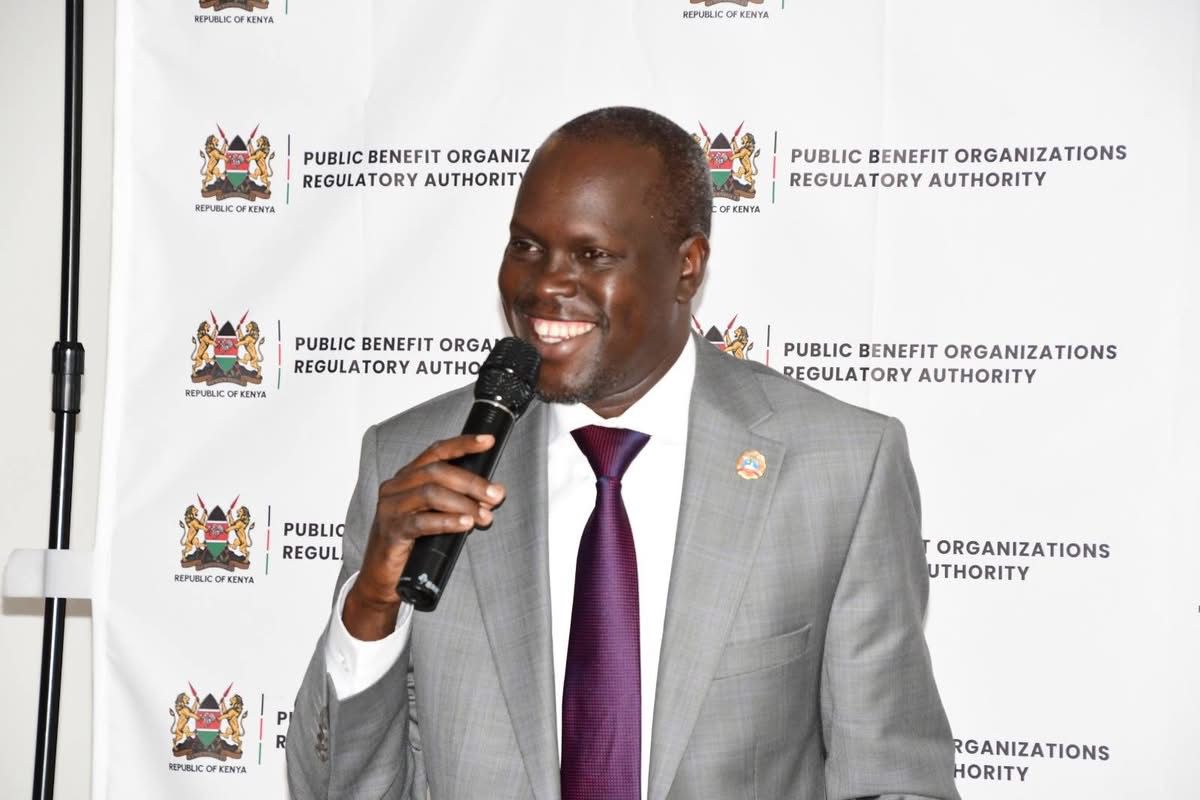

Only 4,000
out of 14,000 registered Non-Governmental organisations are compliant.
Public
Benefit Organisations Authority Director General Dr. Laxmana Kiptoo, Thursday, told the entities to take advantage of the current period to be compliant.
“It is
important that they comply with the law that is being operationalised for the
benefit of all,” he said.
He added that the
agencies know what to do and urged them not to wait for the last-minute rush
for compliance.
“It is
shocking that out of the 14,000 NGOs we have registered, only 4,000 are
compliant,” he said.
Kiptoo spoke
at a media engagement on the status of the new law.
He said they
have embarked on a crucial phase in the implementation of the Public Benefit
Organisations (PBO) Act, 2013.
Kiptoo added that the regulatory framework will significantly impact Kenya’s nonprofit and
development landscape.
Kiptoo said
the operationalisation of the PBO Act on May 14, 2024, marked a historic milestone, replacing the defunct NGOS Coordination Act of 1990.
“The new Act
ushers in a new regulatory framework that supports a dynamic civil society
ecosystem while reinforcing mechanisms for accountability, sustainability, and
transparency,” he said.
The PBO
sector is vast, diverse, and impactful, he added.
The
authority is focused on the finalisation of the draft regulations that will
bring the PBO Act to life.
Between June
and July 2025, the board will be holding county-level public participation
forums across all 47 counties, seeking direct input from stakeholders.
Among
others, the law says all registered NGOs are deemed to be registered under the
PBO Act but will be required to ‘re-register’ under the PBO Act within one year
from the Commencement Date.
Their PBO
status will cease to exist if they do not apply for registration under
the PBO Act within 30 days after a specific notice has been issued to them by
the PBO Authority.
NGOs that
were exempt from registration under the NGO Act are now required to apply for
registration under the PBO Act within three months from the commencement
date.
International
PBOs (IPBOs) will be required to submit particulars of a local authorised
agent (a Kenyan citizen who is resident in Kenya) who will be the IPBO’s duly
authorised legal representative for purposes of receiving official
summonses, notices and inquiries on behalf of the IPBO.
NGOs may be
exempted from registration under the PBO Act and instead granted a permit to
operate in Kenya if they do not intend to directly implement activities or
programmes in Kenya or operate from Kenya to implement activities or programmes
in another country.
PBOs will
enjoy a wide range of benefits, including indirect government support in the
form of exemption from specified categories of taxes, direct government
financing and preferential treatment in public procurement procedures and
bidding for contracts.
There will
be an established PBO Disputes Tribunal that will determine appeals from
members of the public or PBOs against decisions of the PBO Authority and
complaints arising out of a breach of the PBO Act.
Further,
there will be the National Federation of Public Benefits Organisations, which is an
umbrella organisation of all registered PBOs and self-regulation forums.
Its functions include promoting self-regulation, coordinating and monitoring the self-regulation forums registered
under the PBO Act.













